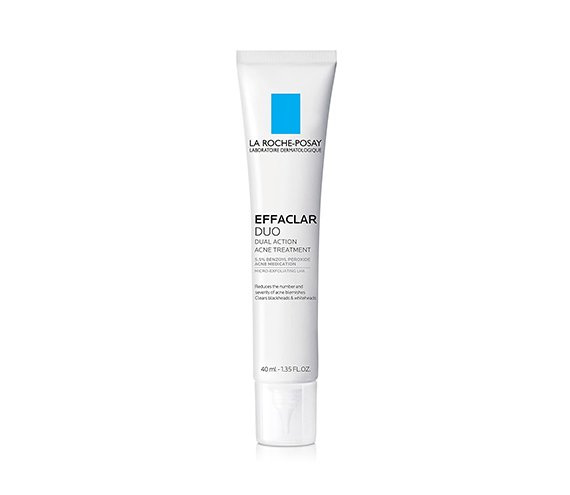Why You’re Still Getting Acne as an Adult
October 30, 2020One of the biggest skin-care myths is that acne magically disappears after you turn 20. During my teen years, I was lucky in that I rarely ever broke out. I thought I was home free until at 25, acne suddenly became one of my top skin concerns. As it turns out, my story is not unique. “Adult acne is very common, especially in women at childbearing age, which is ages 20s to 40s,” says Candace Marino, a medical esthetician based in Los Angeles. So what causes adult acne and how do you treat it without resorting to harsh products marketed towards teens? Read on to find out.
What Causes Adult Acne
Even though you’re done with puberty by your 20s, you can still experience hormonal fluctuations during your menstrual cycle, as well as before, during and after pregnancy. “Common areas for hormonal breakouts in women appear on the chin and jawline, and we tend to see more inflamed and cystic spots,” says Marino.
In addition to hormones, stress, diet and pore-clogging products and impurities can all contribute to breakouts. Basically, If you were acne-prone as teen, chances are that your skin is still acne-prone as an adult.
How Adult Acne Differs from Teen Acne
“During teenage years, hormone fluctuations can cause excess oil and sweat production leading to breakouts, and teens commonly experience larger blackheads and pustules,” says Marino. Comparatively, she says that adults often experience more inflamed, red acne and cystic spots. Luckily for teens, they typically have a high cell turnover rate that helps their skin heal faster. “This is why post-inflammatory acne marks tend to stick around on adults, and we see slower response to products and treatments,” she explains.
How to Treat Adult Acne
What can make treating adult acne trickier than teen acne, says Marino, is that adults may be dealing with pigmentation, dehydration and sensitivity as well. All of these concerns should be taken into consideration when determining the best form of treatment. It can be helpful to consult with a board-certified dermatologist or a licensed esthetician on a treatment plan that is effective, yet won’t exacerbate any other skin issues. “Getting on a routine that helps prevent and treat breakouts while keeping the skin hydrated is super important,” says Marino.
Try incorporating a gentle cleanser that contains an acne-fighting ingredient like benzoyl peroxide. One that team Skincare.com loves is the CeraVe Acne Foaming Cream Cleanser. For a non-drying spot treatment, check out the La Roche-Posay Effaclar Duo Acne Spot Treatment.

Photography and Art Direction: Hannah Packer
Read More:
6 Face Mists for Acne-Prone Skin
3 Ways to Address Closed Comedones

